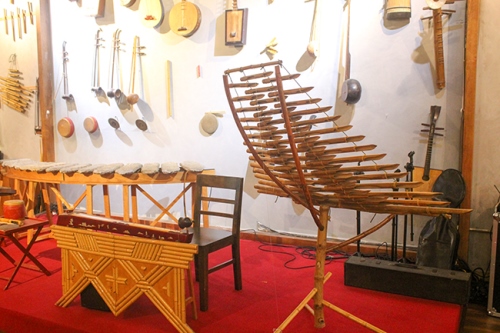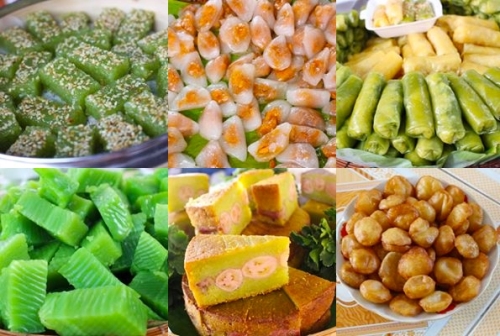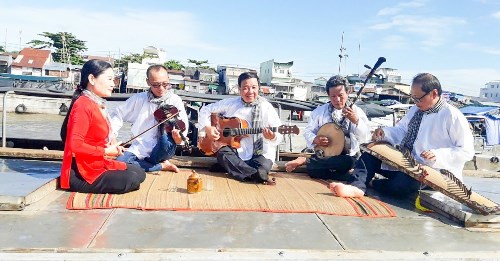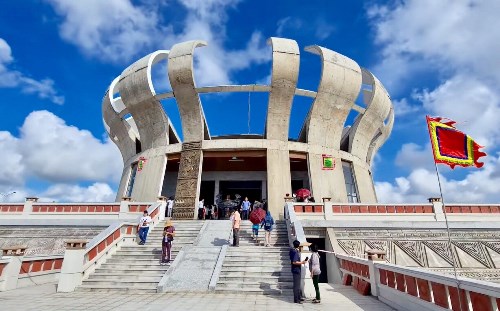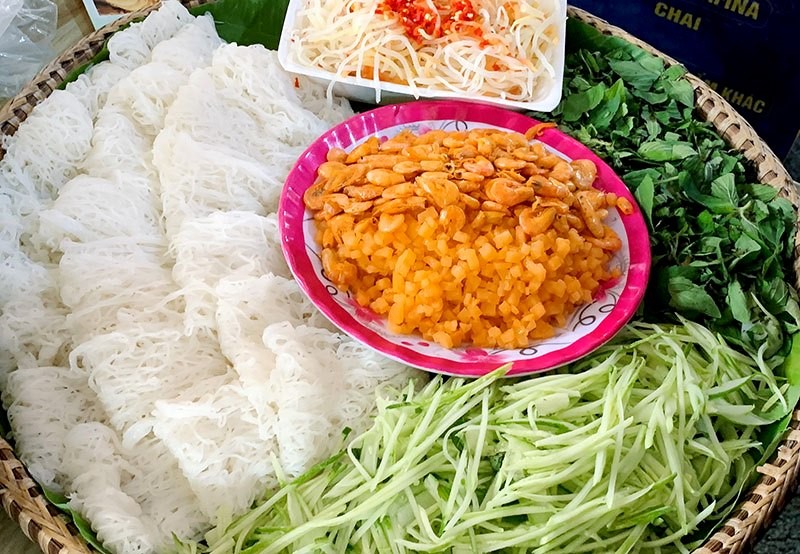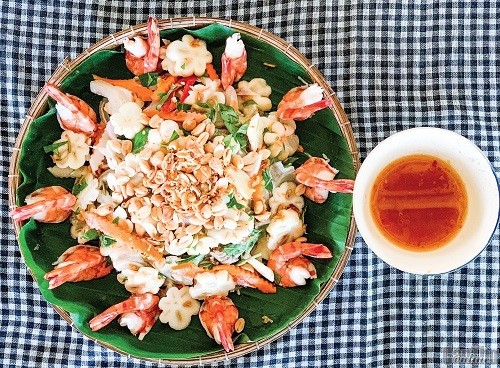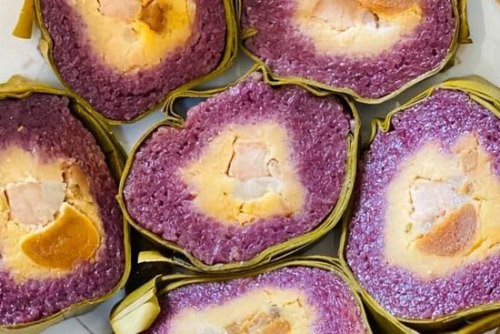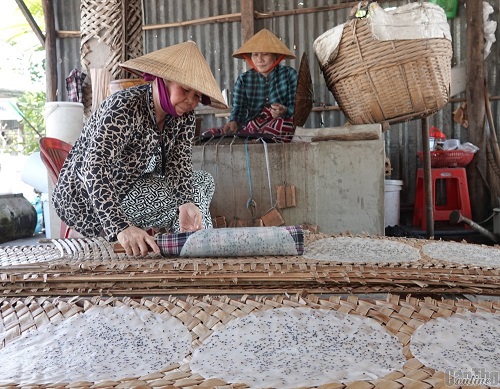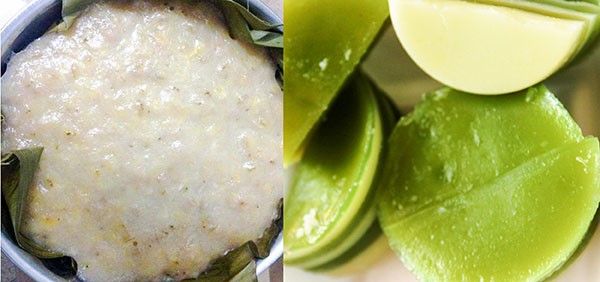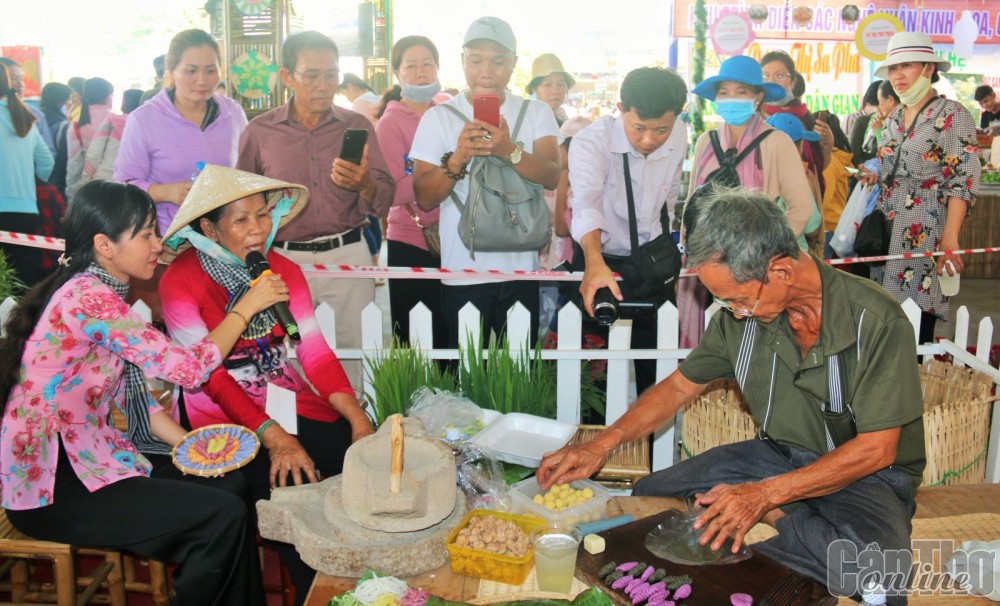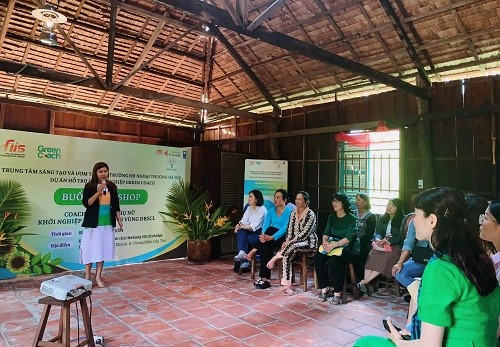
Join hands for the tourism development
In December 2023, Mekong Silt Ecolodge in Phong Dien district introduced a new event to promote environmental protection and green tourism. The owner of Mekong Silt Ecolodge Huynh Thi Bich Tuyen believes that waste management is a crucial issue in tourism development because tourists' perceptions of Can Tho can be negatively impacted by unsightly waste. The event aims to change people's perceptions by encouraging them to bring their sorted trash in exchange for free soap or washing-up liquid made from processed garbage. The idea of organizing this program is based on the Vietnamese tradition of “families and neighborhoods” where locals can exchange homemade products with each other, similar to the way our grandparents did in the past.
Mekong Silt Ecolodge has been experimenting with and implementing a waste recycling program for nearly a year. They turn trash into everyday items, fertilizer for plants, and useful products. Nguyen Thi Hong Doan, an employee at the Mekong Silt Ecolodge, explained that they recycle trash depending on its nature, then handle it and make it into suitable products. Currently, they can treat 100% organic waste and create deodorizing fragrances, soap, washing-up liquid, etc. These products are used in the resorts and tourists like them a lot. Many international guests staying at Mekong Silt Ecolodge also express their love for this approach. Additionally, many tourists participate in workshops to practice garbage classification and trash collection while staying here.
Many tourism businesses in Can Tho are taking action to protect the environment, one of which is Vietravel's GoGreen program. Ms. Le Dinh Minh Thy, Director of Vietravel Can Tho, expressed her pride in being one of the pioneers in sustainable tourism, with over 28 years of operation and development. The GoGreen project has been implemented for many years with the aim of combining tourism activities with environmental protection. The project involves numerous activities such as participating in garbage collection, street cleaning, and providing the people on Son islet with environmentally friendly bags. In 2024, Vietravel plans to restart GoGreen, with numerous activities in place. Offices and employees of the company will decorate green working corners, while simultaneously carrying out a program of collecting used paper and batteries to exchange for environmental protection gifts. This is one of the first steps in promoting tourism combined with environmental protection towards sustainable tourism.
Specifically, starting from March 2024, people can bring their used paper and batteries to Vietravel Can Tho during weekdays (from 8:00 AM to 5:00 PM) and exchange them for green plants or eco-friendly gifts. This program aims to encourage people to properly dispose of their used batteries, which contain harmful substances if not handled properly can harm the environment. Bui Anh Ngoc from Ninh Kieu district said that she learned about this program through social media and friends, and finds it meaningful. She added that it is a good initiative to have a collection point like this and in return, people can also bring back gifts or green plants. Bui Chi Thanh also supports this program as he usually collects used batteries in one place and looks for an appropriate way to dispose of them. He believes that this program is a great opportunity to do so.
Spreading the trend of sustainable tourism
The Sustainable Tourism Report in 2023 of Booking.com reveals that around 80% of global survey participants consider sustainable tourism increasingly important. In Vietnam, 97% of survey participants expressed their desire to travel more sustainably over the next year. Despite economic challenges, up to 75% of Vietnamese tourists are willing to pay extra for certified sustainable travel options to ensure they contribute to creating a positive impact. Additionally, 83% of Vietnamese tourists expressed their desire to help the places they visit become greener and cleaner after leaving. Sustainable tourism development is not just a trend in Vietnam but is also the direction of Vietnamese tourism, as stated in Directive 08/CT-TTg by the Prime Minister, which focuses on comprehensive, fast, and sustainable tourism development. Vietnam’s tourism sector is currently implementing the National Green Tourism Action Program, which includes various activities such as an annual national green tourism forum, green tourism product development, and the establishment of a socially responsible tourism business community. Furthermore, the National Green Tourism Action Program promotes the conversion, evaluation, and certification of sustainable tourism according to the Global Sustainable Tourism Council (GSTC) standards for tourism and hotel establishments. Finally, research and the development of a green tourism certification system that meets international standards for Vietnamese tourist destinations' products and brands is also being undertaken.
In Can Tho, a memorandum of agreement has been signed between Can Tho Municipal Department of Culture, Sports and Tourism and the Swiss State Secretariat for Economic Affairs (SECO) for The Swiss Tourism for Sustainable Development Project (ST4SD). The program will focus on two areas: developing a model of community tourism and green tourism in Tan Loc ward (Thot Not), and establishing a set of criteria for sustainable tourism for Can Tho city. As part of the program, businesses and tourism establishments are also actively creating and promoting green and sustainable tourism initiatives.
At Mekong Silt Ecolodge, a circular economy model is being implemented to effectively promote sustainable practices. In early March 2024, a workshop was held at the Mekong Silt Ecolodge where experts gathered to discuss solutions for developing green tourism and indigenous culture as well as improving sustainable livelihoods for women in the Mekong Delta. Mekong Silt Ecolodge regularly hosts such workshops and training sessions. According to the owner of Mekong Silt Ecolodge Huynh Thi Bich Tuyen, creating a sustainable environment requires a connection with the local community. They organize workshops, and training courses, and connect experts in community tourism, environment, and resources, with people to change perceptions and promote sustainable tourism. Mekong Silt Ecolodge not only conducts workshops on recycling waste but also arranges tours for picking up trash in the canals. Additionally, students from Can Tho University participate in collecting trash with Mekong Silt Ecolodge every month.

More and more tourists choose destinations based on green and sustainable criteria. Developing tourism associated with environmental protection is not simply a trend, but also a responsibility to preserve indigenous cultural resources. By combining tourism development with environmental protection, long-term sustainable value can be created, as well as contributing to the positioning of the image and brand of local tourism. Le Dinh Minh Thy, the director of Vietravel Can Tho, stated that they are collaborating with agencies and units of Can Tho to donate several friendly trash bins in some parks and tourist attractions. The project aims to guide residents and tourists on how to classify trash. They hope that through small actions, people and tourists will gradually become more aware of environmental protection and help build the image of a green, clean, and beautiful city.
Source: Can Tho News - Translated by Hoang Dat





